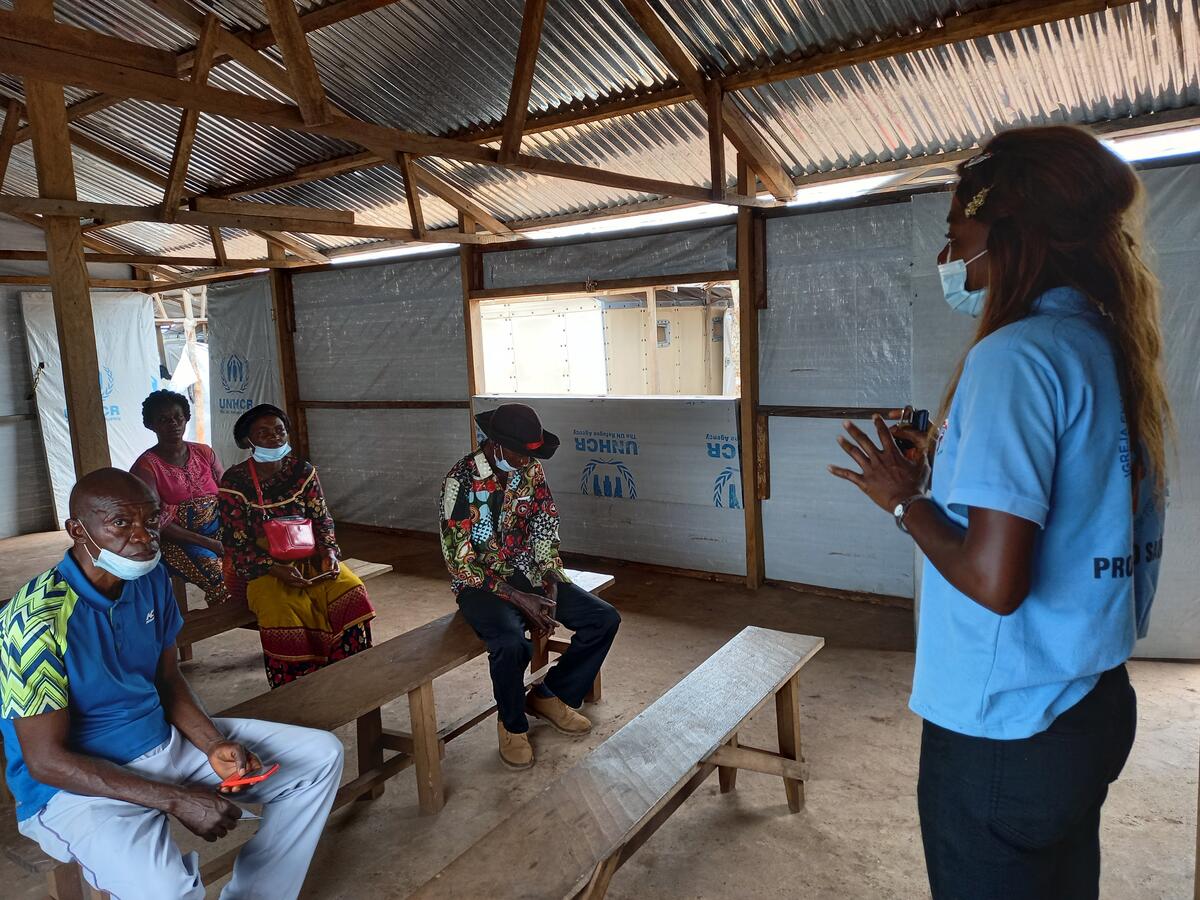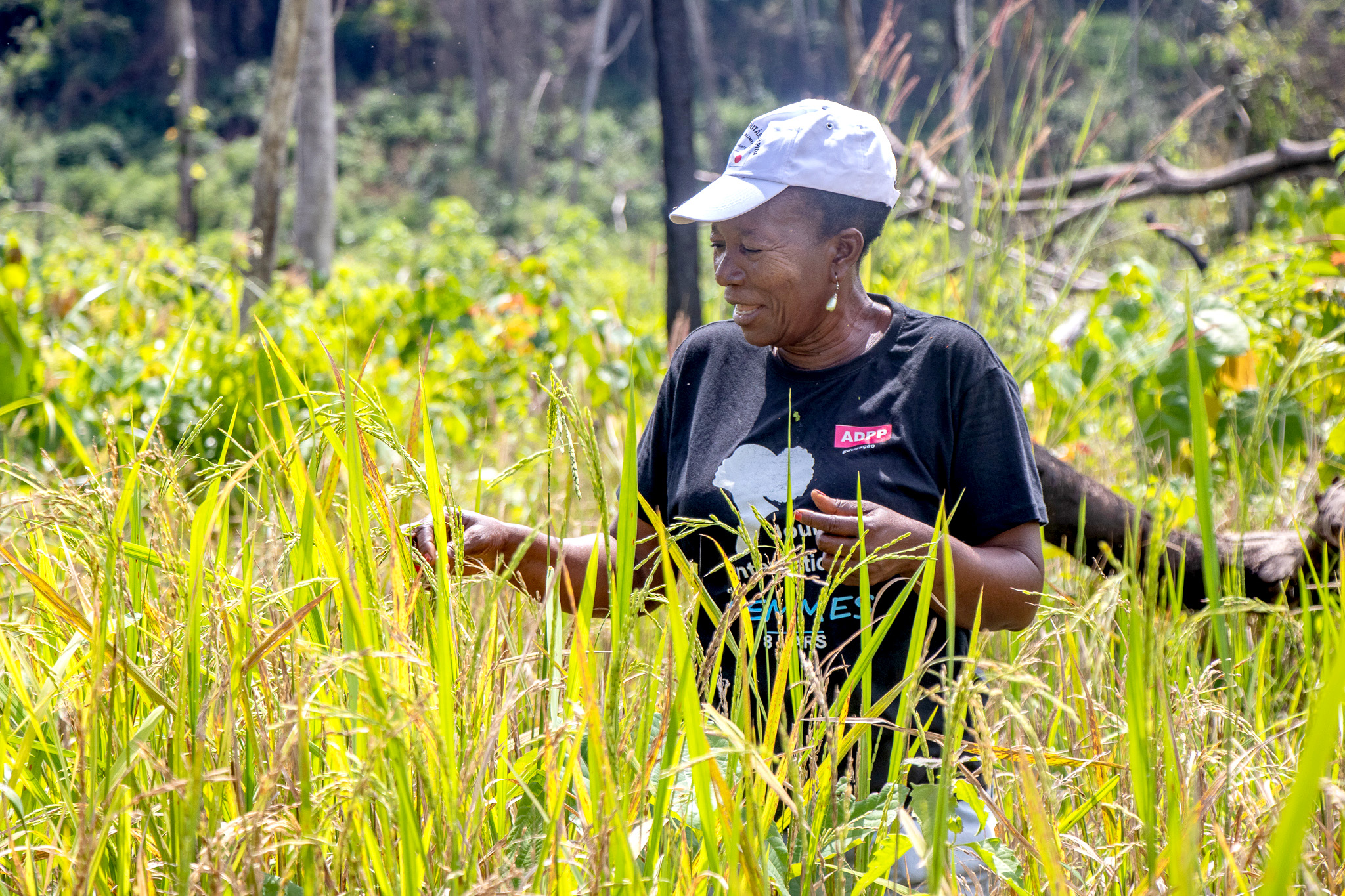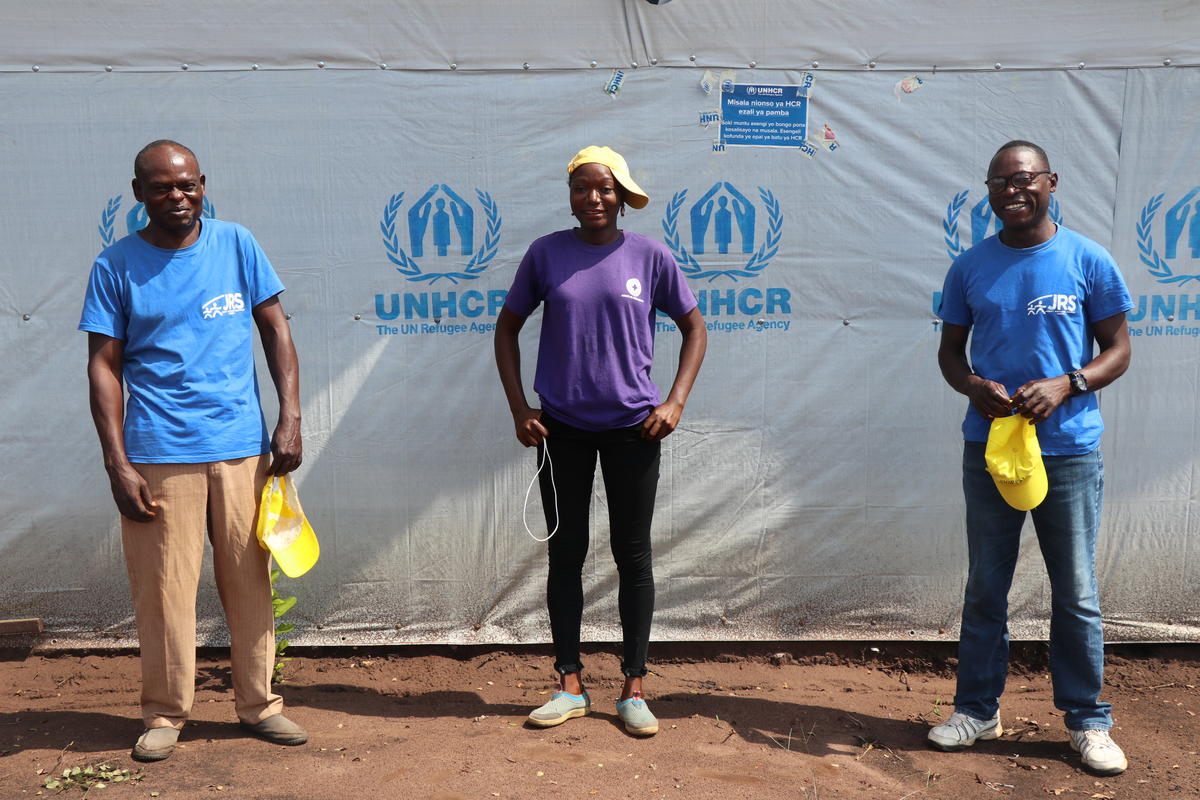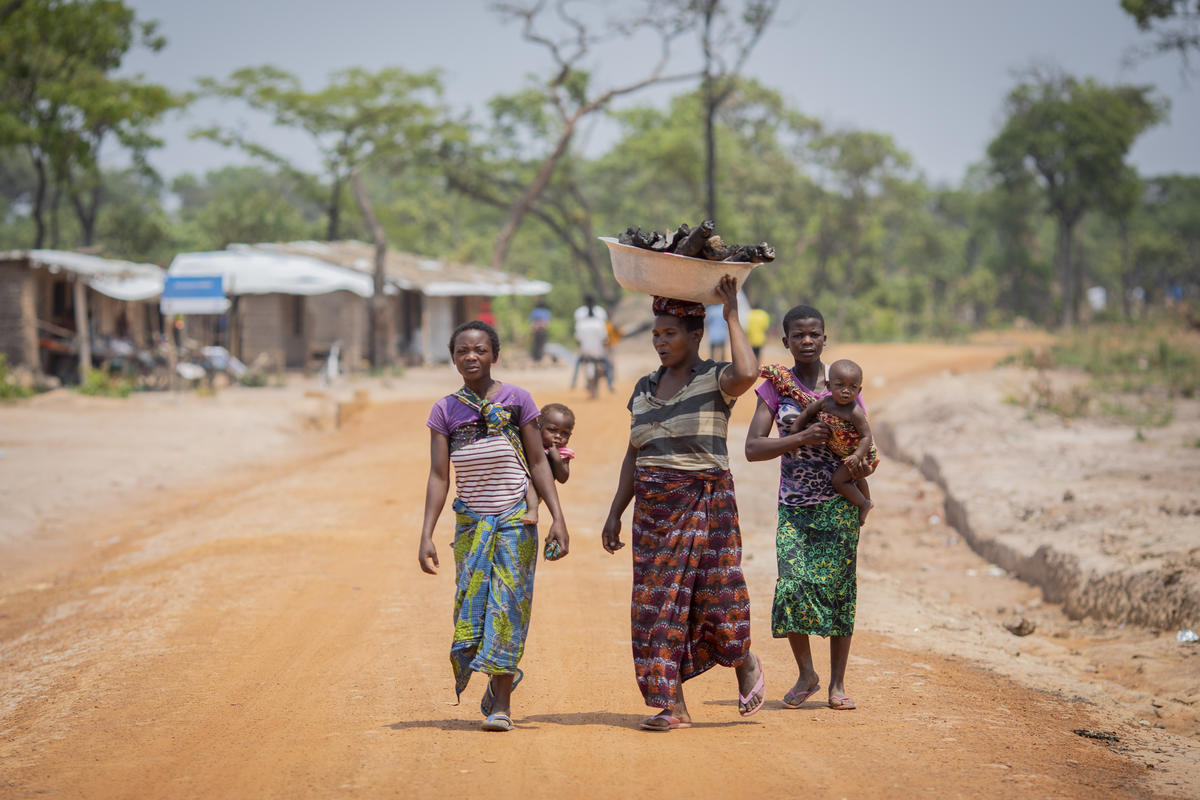Angolan repatration draws to a close
Angolan repatration draws to a close
The return home Monday of a group of 42 Angolan refugees from Botswana marked the end of UNHCR's three-year programme of organised convoys to Angola, under a voluntary repatriation scheme that helped hundreds of thousands of refugees return home. The 42 Angolans, who had been living in the refugee camp of Dukwi in north-eastern Botswana, flew by plane to Menonge in southern Angola where they were given a cash grant to travel on to their home villages. They were also given the usual non-food items for repatriating refugees, ranging from cooking equipment and buckets to more specialised kits containing tools to build houses or seeds and tools to resume farming. Each person also received a two-month food ration from the World Food Programme.
Since the Angolan-organised voluntary repatriation programme started in 2003, more than 123,000 Angolan refugees have gone home with the help of UNHCR. Within Angola, UNHCR has also assisted a further 89,000 people who arrived home on their own. In total, about half a million Angolans are estimated to have repatriated, with or without UNHCR assistance, since the April 2002 ceasefire that brought to an end Angola's 27-year civil war.
This year, more than 28,000 Angolans returned with the assistance of UNHCR from neighbouring countries - mainly Zambia and the Democratic Republic of the Congo (DRC) - 15,000 by charter air flights and the rest in land convoys. In addition, nearly 9,000 refugees received UNHCR assistance inside the country after returning on their own and approaching UNHCR reception centres.
At the end of this year there will still be an estimated 96,000 Angolan refugees outside the country, including those in camps in Zambia, DRC and Namibia, as well as urban refugees caring for themselves and those registered as settled in other countries.
There are also an unknown number of Angolans who have settled in Zambia and DRC where UNHCR is conducting a registration exercise to establish their intentions for return. Although transport will only be made available for the most vulnerable cases, UNHCR will provide resettlement assistance inside Angola to those who return on their own. The future of Angolan refugees still in Zambia who have not taken up UNHCR's repatriation assistance will be discussed when the Tripartite Commission - grouping Zambia, Angola and UNHCR - meets in January.









